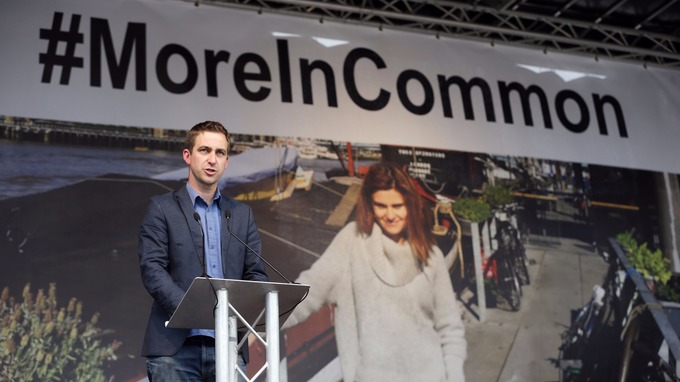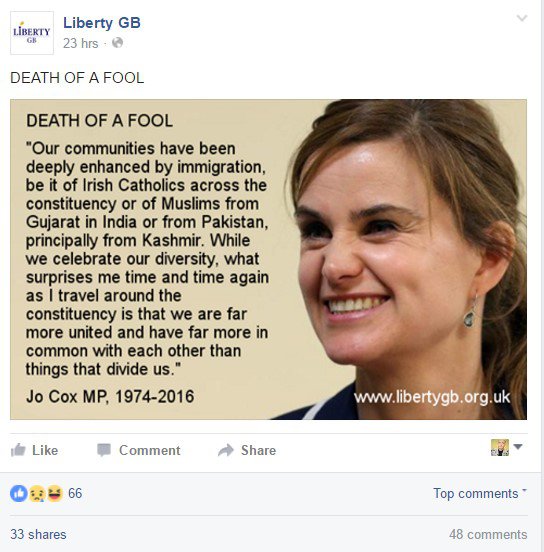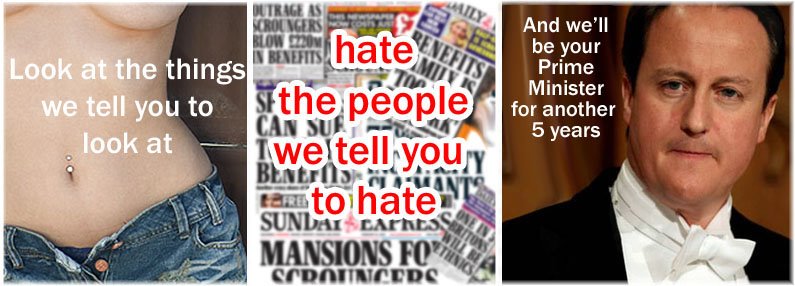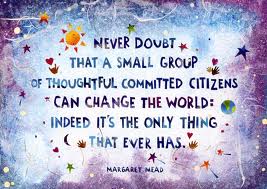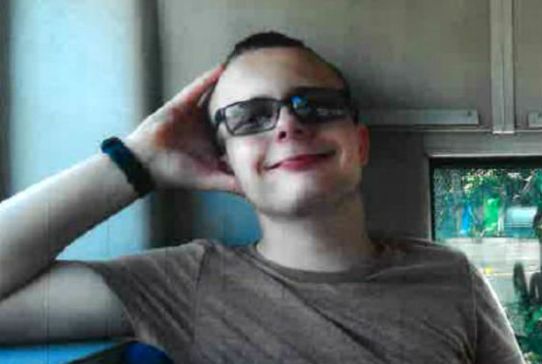
Brendan Mason, who was brutally murdered by two young men he thought were his friends.
Picture courtesy of the Leicester Mercury
Warning: this article was very distressing to write, and is likely to be very upsetting to read.
Two men who filmed themselves savagely beating a young man with learning difficulties and taunting him, telling him to “smile for the camera”, have been sentenced by Leicester crown court to life imprisonment for his murder.
In the early hours of 5 July last year, Joshua Hack, aged 21, and Keith Lowe, 22, lured Brendan Mason, a 23 year old man with learning difficulties, to a park, where they said they wanted to spend time with him. Mason believed the two men to be his friends.
When the three of them arrived at the park, Hack and Lowe hung Mason from a tree. They took turns hitting him while the other held him down for several hours, cruelly laughing and taunting him.
Mason was beaten unconscious, the two young men stripped him naked and threw his body in a pond, leaving him for dead in Abbey Park, Leicester. He was found by park groundsmen at 7.40 am naked, unconscious and bleeding and was airlifted to Walsgrave Hospital in Coventry.
Medics discovered Mason had 99 separate injuries to his head and body, including brain injury, five broken ribs and a collapsed lung. He died from his injuries later that day.
Hack previously admitted murder. However, Lowe denied it. However, he was forced to change his plea four days into his trial, after police produced video as evidence of what he did, which he had tried to delete from his phone.
The court heard the attack had been planned the night before and that Hack and Lowe misinterpreted his behaviour towards a girl at a party. Prosecutor Miranda Moore QC said: “They were describing Brendan as a paedophile and nothing could be further from the truth.”
Mason’s learning difficulties led to a bias in how his ordinary social interactions were perceived.
She added that police had recovered a “‘trophy’ picture of Lowe standing behind the naked and beaten Brendan, who is sitting cross-legged on the floor”.
A second video, lasting 53 seconds, was deliberately filmed on the mobile phone for others to see. The police managed to retrieve it from cloud storage, showing Lowe taking a direct part in the beating. Lowe had attempted to delete the footage from his phone.
Moore said: “The audio that goes with it makes that clear.”
The court heard that in the second video, Lowe says: “Brendan. Look at him. Told you whatever he’d done to you, I’d do worse to him, told you that. Move your hand away from your face. Move your hand away from your face now.”
Moore told the court:
“Officers were able to see the video on the Cloud, showing an unfortunate scene.
It shows Brendan’s battered and naked body with Lowe landing blows.
It was being made for a third party to show them what happened to Brendan.”
The court was also presented with Facebook messages the pair were sending each other while they were in the park with Mason prior to the attack. They used the Facebook messages to plan the attack. Mason who had trusted the two men, believing they were his friends, had no idea to what was about to take place.
At 2:46am, Hack sent Lowe a message saying: “Just hit him and we can both ****off when he’s K’ Od. Just do it dude.”
Lowe replied: “Shall we do it because he’s f**ked me off with the lies.”
The court heard how Mason died from inflicted, brutal and unsurvivable brain injuries.
Mason’s family said in a statement:
“It is not right how two evil people can do such a horrific thing and leave a massive hole in our lives that will never be filled again.
Brendan was a lovely young man and he was so happy. He had numerous learning difficulties and very poor vision.
Even though Brendan had numerous learning difficulties and was very easily led by others, he always knew right from wrong.
The police have been a big part of our life for the past seven months; they have been amazing, but there will never be closure for us.”
Sentencing the two men to life in prison, Judge Michael Chambers said: “You [Lowe and Hack] subjected him [Mason] to a brutal and sustained attack in which you caused him great pain and humiliation.
Brendan Mason was only 23 with his life before him. You subjected him to a merciless attack with extreme violence.
He was sadly a vulnerable young man with learning difficulties. He was kicked mercilessly while naked. The video found was a chilling and deeply disturbing recording of Brendan naked, being kicked repeatedly to the head.
He’s even told to remove his hands from his face so you can kick him. You subjected him to a brutal and sustained attack of extreme violence. You caused him great pain and humiliation.
This was a planned attack, during which you filmed each other assaulting him and you revelled in what you had done, bragging to others. You stripped him naked and left him unconscious. He died later that day.”
The judge added that Hack had lied in his first interview with the police and had even gone with friends to lay flowers at the scene where Mason’s body was found. He said Lowe had bleached his bloodstained trousers, washed his hooded top and hidden his blood-spattered shoes in a bid to cover his tracks.
Senior investigating Officer Detective Chief Inspector Mick Graham said after the trial: “Brendan was known to the defendants and considered them as friends, and they lured him to the park with the full intention of hurting him. Brendan was subjected to a vicious, sustained attack which was filmed by his attackers on their phones. He was left naked and alone in the park having been brutally beaten.”
Hack and Lowe were caught on CCTV footage casually walking into a McDonald’s after they had stripped, hung and then beaten Mason into unconsciousness, seriously and fatally injuring him, and leaving him for dead. Lowe had kept Mason’s mobile phone which he and his then girlfriend were using in the following days.
The growth of prejudice, discrimination and hate crime: Allport’s ladder
Gordon Allport studied the psychological, social, economic and political processes that create a society’s progression from prejudice and discrimination to violence, hate crime and eventually, if the process continues to unfold without restraint, to genocide. In his landmark exploration of how the Holocaust happened, Allport describes psychological and socio-political processes that foster increasing social prejudice and discrimination and he provides insight into how the unthinkable becomes socially and psychologically acceptable: it happens incrementally, because of a steady erosion of our moral and rational boundaries, and propaganda-driven changes in our attitudes towards “others” that advances culturally, by almost inscrutable degrees.
The process always begins with political scapegoating of a social group and with ideologies that identify that group as an “enemy” or a social “burden” in some way. A history of devaluation of the group that becomes the target, authoritarian culture, and the passivity of internal and external witnesses (bystanders) all contribute to the probability that violence against that group will develop, and ultimately, if the process is allowed to continue evolving, genocide.
Economic recession, uncertainty and authoritarian or totalitarian political systems contribute to shaping the social conditions that trigger Allport’s escalating scale of prejudice. The Conservatives are authoritarians, and prejudice towards vulnerable and socially protected minority groups is almost a cardinal Conservative trait.
Conservatives and the right more generally tend to view the social world hierarchically and are more likely than others to hold prejudices toward low-status groups. This is especially true of people who want their own group to dominate and be superior to other groups – a characteristic known as social dominance orientation. (Pratto, Sidanius, Stallworth, & Malle, 1994).
Neoliberalism, as an overarching political-economic project of the New Right, establishes and maintains social hierarchies and the strong competitive individualism embedded in neoliberal ideology sets up conflict over resources between social groups, undermining social cooperation and solidarity.
As inequality has grown in the UK, poverty has also invariably increased, which has caused fear and resentment towards intentional, politically constructed scapegoats and outgroups.
The nature of prejudice
Prejudice, which is based on unjustified generalisations about groups of people, is reductive, it obscures the complexity of the human experience because the person with prejudices oversimplifies the diversity of life found in a single society or throughout the world. The rise in prejudice and discrimination in the UK is because of right wing ideology and mythology, designed purposefully to divert the public from the fact that they are being systematically dispossessed of their wealth by a minority, and to maintain the legitimacy (and growing wealth) of those perpetrators in power.
The media is far from objective, benign and politically neutral, in fact we have handful of offshore billionaires that have, along with the government, subverted democracy and established a cultural hegemony. This self-appointed elite are telling you that some human lives are worthless, whilst investing in their own, quite literally, at all cost to our society.
The European Commission against Racism and Intolerance (ECRI) reprimanded some British media outlets, particularly tabloid newspapers, for “offensive, discriminatory and provocative terminology”.
In their report, the ECRI said hate speech was a serious problem in the UK. It cited Katie Hopkins’ infamous column in The Sun, where she likened refugees to “cockroaches” and sparked a scathing response from the UN High Commissioner for Human Rights, and the same newspaper’s debunked claim over “1 in 5 Brit Muslims’ sympathy for jihadis”.
“ECRI urges the media to take stock of the importance of responsible reporting, not only to avoid perpetuating prejudice and biased information, but also to avoid harm to targeted persons or vulnerable groups,” the report concluded.
It also named David Cameron and Nigel Farage as among the British politicians and institutions accused of fuelling rising xenophobia in the UK as debate continues to rage over Brexit, the refugee crisis and terrorism.
It found a “number of areas of concern” over intolerant political discourse and hate speech, as well as violent racial and religious attacks.
The media is being used by and large as a right-wing outlet for political techniques of persuasion, our culture has been saturated with a pathological persuasion to hate others. And prejudice tends to multitask, it doesn’t prefer one social group. It grows.
We live in a society where more than one in two disabled people have experienced bullying or harassment in the workplace, according to research by the disability charity Scope.
The survey of 1,009 disabled UK adults during August 2016 reveals 53% have been bullied or harassed at work because of their disability.
We have a government that does not observe the basic rights of disabled people. Furthermore, the Conservatives have systematically contravened the human rights of disabled persons. This is a government that uses gaslighting to avoid dialogue and democratic accountability regarding the consequences of their draconian, discriminatory and illegal policies. Techniques of neutralisation used by the government include the manipulative use of language that is designed to mislead, for example, using the word “help” and support” to describe punitive policies and harsh cuts to lifeline support for disabled people.
The stereotypical mainstream media portrayals of people with disability and medical conditions as “shirkers” and “fakes”, with a significant increase in articles focusing on disability benefit and fraud has impacted negatively on people’s views and perceptions of disability related benefits, leading to perceptual bias. This was a tactical political move to de-empathise the public, preempting any objection and backlash to the brutal cuts the Conservatives applied to disabled people’s lifeline social security.
There are political and economic constraints imposed on this group of people by a highly discriminatory government. This sends out a message to the public – that disabled people have fewer rights than other citizens; that disabled people are not experts of their own condition or experiences and need the state to “incentivise” them to “overcome” their disabilities, and institutionalised discrimination, and that it is okay to direct prejudice at disabled people as they are somehow “less” than other citizens.
Policies are systemised, intentional political actions and reflect how the government thinks society ought to be. The majority of austerity cuts have been directed at those with disabilities. The recent removal of the Employment Support Allowance (ESA) work related activity component; the scrapping of the Independent Living Fund; the purposeful reduction in those people deemed eligible for ESA using an amended and harsher work capability assessment; the reduction in those deemed eligible for Personal Independent Payment and subsequent access to the motability scheme, may be regarded as punitive measures aimed at an “undeserving” group. Such policies have systematically stigmatised, outgrouped and ultimately, contributed to the cultural dehumanisation of disabled people.
The discriminatory cuts have caused ill people to feel desperate and worthless by depriving them of the practical means to live, and have become another means of promoting an ideology defined by exclusion and inequality. Many people with medical conditions have died as a consequence of not being able to meet their basic needs, people with mental distress and illness have been pushed over the precipice, and have taken their own lives.
There has been a 213 per cent rise in hate crimes against disabled people, with figures rising 40% per year from 2015. Lee Irving was brutally murdered in June, 2015. Irving had severe learning difficulties. He was bullied and tortured over several days at a house in Newcastle. When he died from his terrible injuries, his tormentors dumped his body on a footpath. Wheatley’s mother, Julie Mills, his then girlfriend Nicole Lawrence, 22, and his accomplice Barry Imray, 35, who also has learning difficulties, did nothing to protect Irving. They were bystanders Wheatley’s mother, Julie Mills, 52, his then girlfriend Nicole Lawrence, 22, and his accomplice Barry Imray, 35, who also has learning difficulties, did nothing to protect Irving. They were passive bystanders.
The justification narrative for the last two government’s targeted austerity policies, and the policies themselves have entailed negative role modelling which has influenced the attitudes and behaviours of the public. Hate crimes are bias motivated behaviours.
The major contributing factor to the increase in hate crime is the collective bias, attitudes and behaviours of the current government, which has perpetuated, permitted and endorsed prejudices against social groups, with a largely complicit media amplifying these prejudices. Their policies embed a punitive approach towards the poorest social groups. This in turn means that those administering the policies, such as staff at the department for work and pensions and job centres, for example, are also bound by punitive, authoritarian behaviours directed at a targeted group.
As authority figures and role models, the government’s behaviour establishes a framework of acceptability. Parliamentary debates are conducted with a clear basis of one-upmanship and aggression rather than being founded on rational exchange. Indeed, Cameron openly sneered at rationality and didn’t engage in a democratic dialogue, instead he employed the tactics of a bully: denial, scapegoating, vilification, attempts at discrediting, smearing and character assassinations. This behaviour in turn gives wider society permission and approval to do the same.
Scapegoating has a wide range of focus: from “approved” enemies of very large groups of people down to the scapegoating of individuals by other individuals. The scapegoater’s target always experiences a terrible sense of being personally edited and re-written, with the inadequacies of the perpetrator inserted into public accounts of their character, isolation, ostracism, exclusion and sometimes, expulsion and elimination. The sense of isolation is often heightened by other people’s reluctance to become involved in challenging bullies, usually because of a bystander’s own discomfort and fear of reprisal.
The consequences of bystander apathy
Hate crime directed at disabled people has steadily risen over the past five years, and is now at the highest level it’s ever been since records began. That’s the kind of society we have become.
Prejudice and discrimination cause inequality, which in turn causes more prejudice and discrimination. It requires the linguistic downgrading of human life, it requires dehumanising metaphors: a dehumanising socio-political system using a dehumanising language, and it has now become normalised, familiar and all-pervasive: it has seeped almost unnoticed into our lives. It has started to erode the natural inhibitions that prevent us from inflicting harm on other human beings.
Perpetrators have become increasingly confident in the “validity” of their prejudice, the public are being systematically desensitised and indoctrinated. Mocking, negative stereotypes and negative images become a part of our everyday culture and language: hate speech is normalised, discriminatory policies and practices flourish, hate crimes – bias motivated behaviours – are permitted.
Because we have allowed this process to unfold, as a society.
The Holocaust is the most thoroughly documented example of the extreme cruelty, savagery and hideousness of dehumanisation. It’s a little too easy to imagine that the Third Reich was an aberration. We can take the easy option and dismiss the Holocaust as a very unusual phenomenon – a mass insanity instigated by a small group of deranged ideologues who conspired to seize political power and exercise their monstrously evil will.
It’s comforting to imagine that these were uniquely cruel and savage people. However, one of the most disturbing discoveries about how the Holocaust happened is not that all of the Nazis were madmen and monsters. It’s that they were mostly ordinary human beings, in a society of ordinary citizens like you and I.
Related
Another bias motivated murder – Who killed Jo Cox?
Conservatives, cruelty and the collective unconscious: behind the cellar door
I don’t make any money from my work. But you can help me continue to research and write informative, insightful and independent articles, and to provide support to others by making a donation. The smallest amount is much appreciated – thank you.



